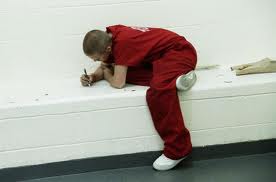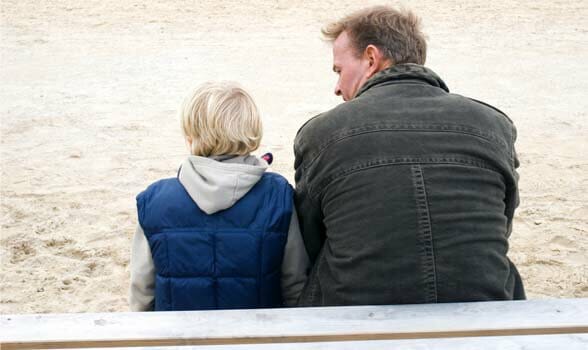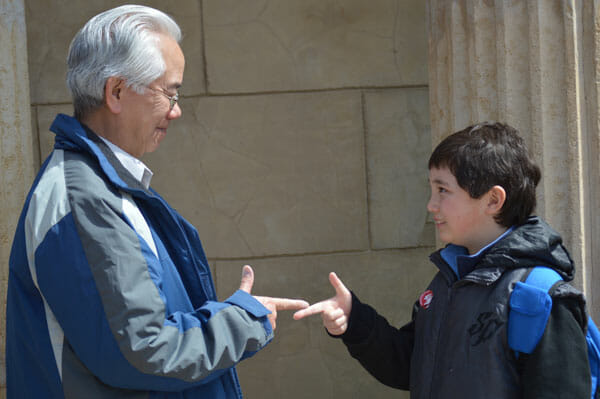I worked in the Nassau County jail, in a very large dorm-like room with just over 116, 20-year-old, mostly fatherless, young men. Most of these teens were facing felony charges. The Thursday afternoon meeting would begin with an attention-getter that would start them talking about their experiences and then we would share truth from God’s word. The week before Mother’s Day we brought  Mother’s Day cards and gave them out as the ice breaker. As soon as they had those cards in their hands, their minds were on mom and the meeting ended as they all unexpectedly retreated to their bunks to write lovingly to their mothers and/or grandmothers. All you could hear was the sound of one hundred pens touching Hallmarks with the occasional “How do you spell wonderful?” that echoed within the blue cinder block walls.
Mother’s Day cards and gave them out as the ice breaker. As soon as they had those cards in their hands, their minds were on mom and the meeting ended as they all unexpectedly retreated to their bunks to write lovingly to their mothers and/or grandmothers. All you could hear was the sound of one hundred pens touching Hallmarks with the occasional “How do you spell wonderful?” that echoed within the blue cinder block walls.
On Father’s Day, we brought another one hundred cards. Again we used it as an ice breaker; however this time, the behavior of the young men was quite different. They stayed in the group and unpacked their shared pain. We spoke about their experiences or lack of experiences with their fathers and the word “wonderful” never came up. There was great anger – some had been abused and many had seen their beloved mother beaten by their dad. Many others had no idea who their dad was. The word father brought up resentment, anger, bitterness, and the feeling of being abandoned. However, many of the boys were fathers themselves. Some bragged about having babies on more than one block in their neighborhood. Had their pain impacted their behavior? The boys who spoke about their fatherhood all stated emphatically that they would never treat their children like their dad had treated them. However, the idea of providing for their children seemed to be limited to bringing a package of Huggies Diapers to the house once in a while. They all acted like this qualified them for a “father of the year” award. Sadly, their experiences with their dads left them with no idea of how to be a good father. What model could they follow? Ironically, they sat in jail separated from the children for whom they spoke of love. We took ninety-nine blank, unaddressed, father’s day cards back to the Youth Mentoring office with us.
The “father wound” is not limited to the poor or the imprisoned. As a matter of fact, many of our best ministry supporters give to undergird this ministry because they know the pain and difficulty first hand. One close friend told me this story:
‘I grew up the son of a mob boss. My dad went to prison when I was six.  My mom protected me from the family and I never knew what happened to my dad until one day when I was fifty-five. I owned a business, drove a beautiful luxury car, and had a large home in the “right part of town.” I was sitting at my desk when my secretary walked into my office and said, “There’s a guy on the phone who claims to be your dad.”
My mom protected me from the family and I never knew what happened to my dad until one day when I was fifty-five. I owned a business, drove a beautiful luxury car, and had a large home in the “right part of town.” I was sitting at my desk when my secretary walked into my office and said, “There’s a guy on the phone who claims to be your dad.”
I took the call. My father had just been released from prison and had no money. He wondered if I would mind if he came for a visit. The next day I picked him up at the bus station. It was the first time I had seen him since I was six. I took him home. As he got out of my car in my driveway, he looked from my car to my house and said; “Son, I am proud of you. Look at what you have become.”
This man had chosen a lifestyle that left me fatherless. I did not know him at all. Yet when he said he was proud of me, it was the best day of my life. I just hugged him and wept right there in my driveway. The next day I took him to the Cadillac dealership and bought him a new car. He lived with me for five years; until the day I buried him. During those five years, I got to know my dad and he got to know my heavenly Father.
My friend was able to forgive his dad because He had first experienced that grace from his Heavenly Father through Jesus. His experience of being forgiven of much enabled him to forgive much. The boys in the jail all felt the pain of father-loss. They were imprisoned by the bars they could see and by the bitterness that indirectly led to their imprisonment. I believe that many of the boys had legitimate desires to break the cycle and be good fathers but invisible bars of bitterness blocked the way.
What is keeping them from being the dads that they wish they had had? They need to experience the forgiveness of God before they have the grace to extend it to their fathers. Then they need a model of biblical fatherhood to follow, or they will have no idea how to go about it. So the forgiveness through Christ provides the capacity to change, the model shows the way, and the Spirit provides the needed power.
I spoke with a 37-year-old man who was mentored in this ministry many years ago. He is now an excellent father to his three children. He told me that when he was a boy, he loved to watch his mentor with his own son. ‘I used to think; so that is how it is supposed to be done.’
You and I have been forgiven much. 122 boys and 20 girls are currently waiting for a Christian to say yes to spend two hours a week to show them the way to the cross. Pray about responding to this call. What a great way to celebrate The Resurrection. 631-242-5101
by John Cragg Executive Director of Long Island Youth Mentoring




